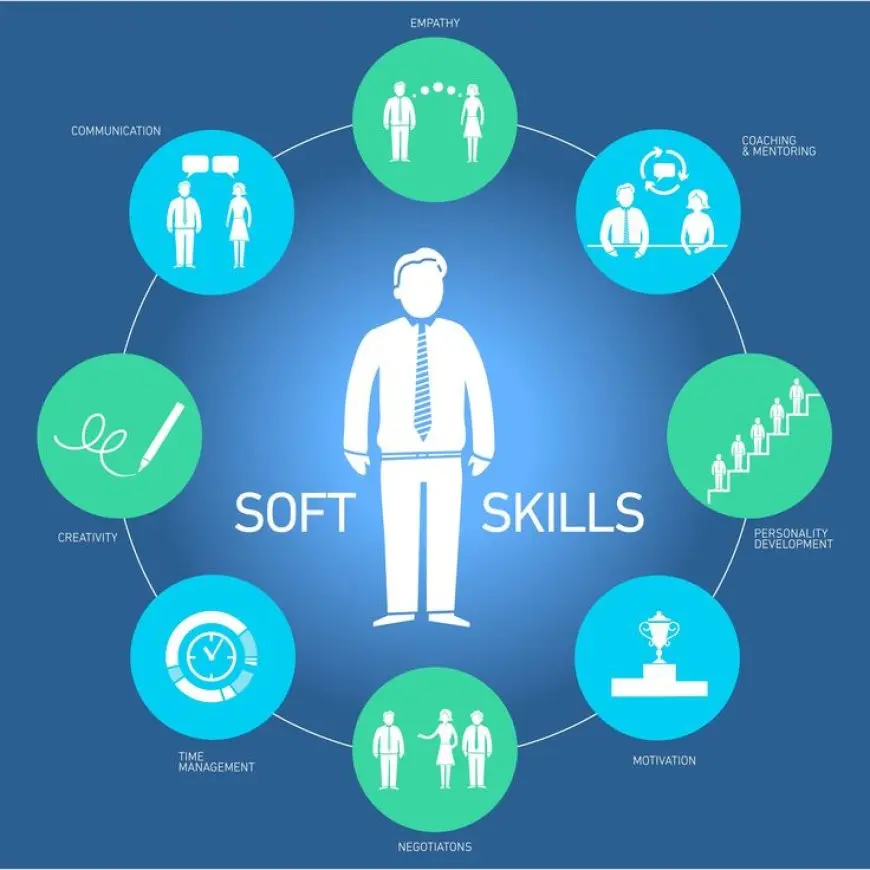Why Soft Skills Are Essential for Career Success
Why Soft Skills Are Essential for Career Success

In today’s competitive job market, having strong technical expertise is not enough. Employers are increasingly recognizing the importance of soft skills, which are personal attributes that help individuals work effectively and harmoniously with others. Soft skills complement hard skills and are often the differentiating factor between candidates who are technically proficient but lack interpersonal effectiveness and those who excel in both technical and relational aspects. Here’s why soft skills are essential for career success.
Communication Skills
One of the most important soft skills is the ability to communicate effectively. Whether in writing or speaking, clear communication helps to ensure that ideas, goals, and expectations are understood by everyone involved. Strong communication also involves being an active listener, ensuring that others feel heard and valued. In the workplace, employees who can communicate their ideas well, collaborate with colleagues, and provide feedback effectively often stand out. This skill is essential in building relationships, both with team members and clients, and is key to reducing misunderstandings and improving efficiency.
Teamwork and Collaboration
Working well with others is critical for success in almost any profession. Being a strong team player means contributing to a group effort, helping others when needed, and working toward a common goal. Strong teamwork also requires adaptability, as team dynamics and projects can change quickly. People who demonstrate effective teamwork are often those who can collaborate across departments, take different perspectives into account, and leverage the strengths of each team member to achieve better results. Successful collaboration leads to increased creativity, innovation, and job satisfaction.
Problem-Solving and Critical Thinking
The ability to solve problems efficiently and think critically is a vital soft skill. Employers value employees who can approach challenges with a solution-oriented mindset and make decisions based on logic and analysis. Critical thinking allows individuals to assess situations, weigh pros and cons, and develop effective strategies to address issues. Problem-solving involves creativity, resourcefulness, and persistence, all of which are crucial when dealing with obstacles in the workplace. Being known for your problem-solving abilities increases your value to the organization and opens up opportunities for advancement.
Emotional Intelligence
Emotional intelligence (EQ) refers to the ability to recognize, understand, and manage your own emotions, as well as the emotions of others. A high EQ helps individuals navigate social complexities in the workplace, manage stress, and resolve conflicts in a calm and constructive manner. Leaders with strong emotional intelligence create supportive and positive environments where employees feel motivated and valued. Furthermore, emotionally intelligent individuals are often better at handling criticism, managing difficult situations, and maintaining a positive attitude, all of which contribute to career success.
Adaptability and Flexibility
The modern workplace is fast-paced and constantly evolving. Professionals who can adapt to changing circumstances and remain flexible are better positioned to succeed in the long term. Adaptability involves being open to new ideas, learning new skills, and adjusting to shifting priorities. Employees who demonstrate flexibility can easily adjust to new technologies, roles, or work environments, ensuring that they stay relevant in an ever-changing job market. This trait helps individuals thrive in uncertain situations, take on new responsibilities, and stay resilient in the face of challenges.
Time Management and Organization
Effective time management and organizational skills are essential for managing workload and meeting deadlines. Employees who can prioritize tasks, plan their work efficiently, and manage their time well are more productive and less stressed. These skills also allow professionals to juggle multiple responsibilities without becoming overwhelmed. Strong organizational skills contribute to creating a structured work environment, helping employees stay on track and avoid last-minute scrambling. Time management is particularly important for those in leadership roles, as they are often required to balance competing priorities and make strategic decisions about how to allocate resources.
Leadership and Motivation
While leadership may seem like a skill specific to managers, it is important for individuals at all levels of an organization. Leadership is not just about holding a title; it’s about inspiring and motivating others, driving change, and leading by example. Strong leaders are those who can guide their team toward shared goals, encourage growth, and maintain focus. Being a self-motivated individual is also an essential aspect of career success. People who take initiative, are proactive in their work, and demonstrate enthusiasm are often more successful and valued by their employers. Motivation can inspire others and help push the team or organization to greater heights.
Conflict Resolution
Conflicts are a natural part of any workplace, but how they are handled can significantly impact team dynamics and organizational culture. Strong conflict resolution skills allow individuals to address disagreements in a constructive and respectful manner. Rather than letting tensions escalate, individuals with conflict resolution skills can mediate disputes, facilitate difficult conversations, and find mutually beneficial solutions. This ability helps create a positive work environment and strengthens relationships between coworkers. Employers value professionals who can maintain harmony within teams, making conflict resolution an essential soft skill for career growth.
Networking and Relationship Building
Building strong professional relationships is vital for career success. Networking is not just about meeting new people; it’s about creating genuine connections that can help advance your career. Strong relationship-building skills help you establish trust, collaborate effectively, and leverage others’ expertise and resources. Networking can open doors to new opportunities, partnerships, and mentorship, all of which are crucial for professional development. By fostering a network of supportive contacts, you can increase your visibility and enhance your career prospects.
Soft skills are an integral part of career success because they allow individuals to interact positively with others, solve problems effectively, and adapt to changing work environments. Employers are looking for professionals who can bring more than just technical expertise to the table; they want individuals who can communicate well, collaborate effectively, and demonstrate emotional intelligence. By developing and honing these soft skills, you’ll not only enhance your career prospects but also contribute to creating a more positive and productive work environment.







